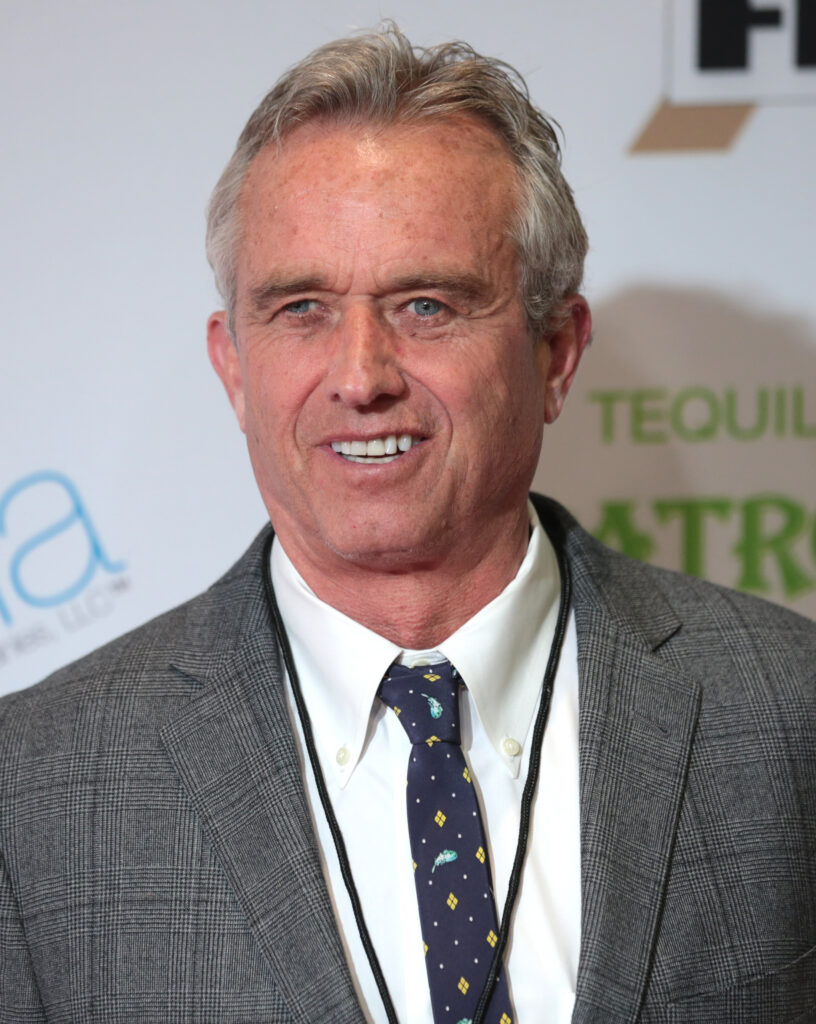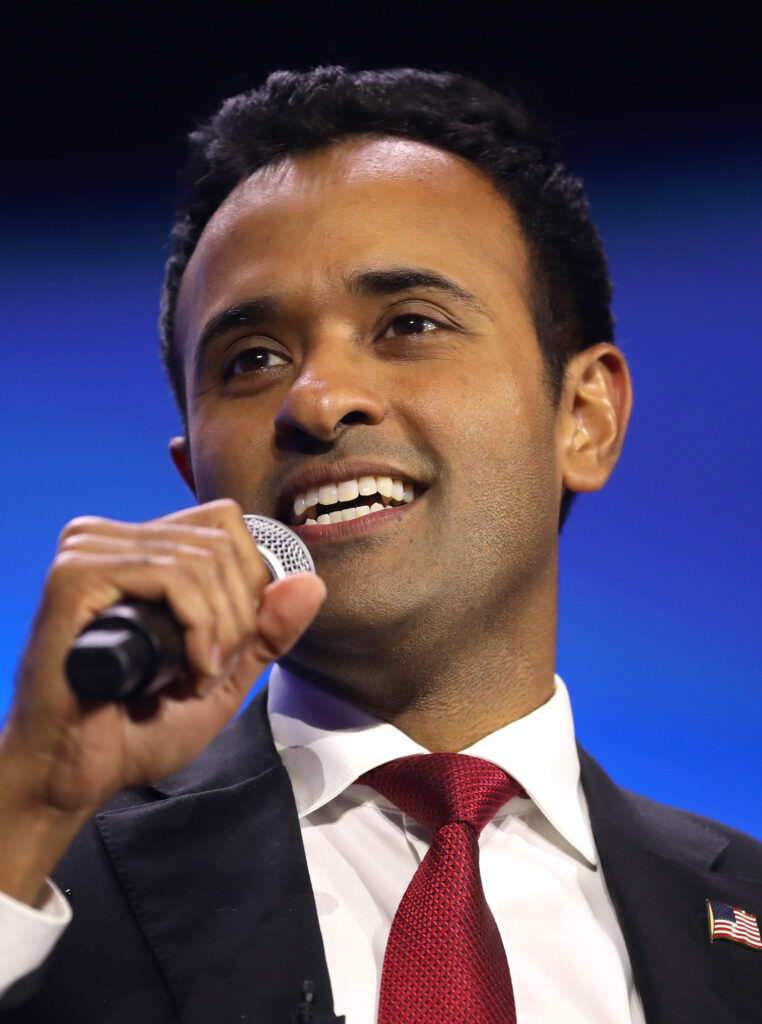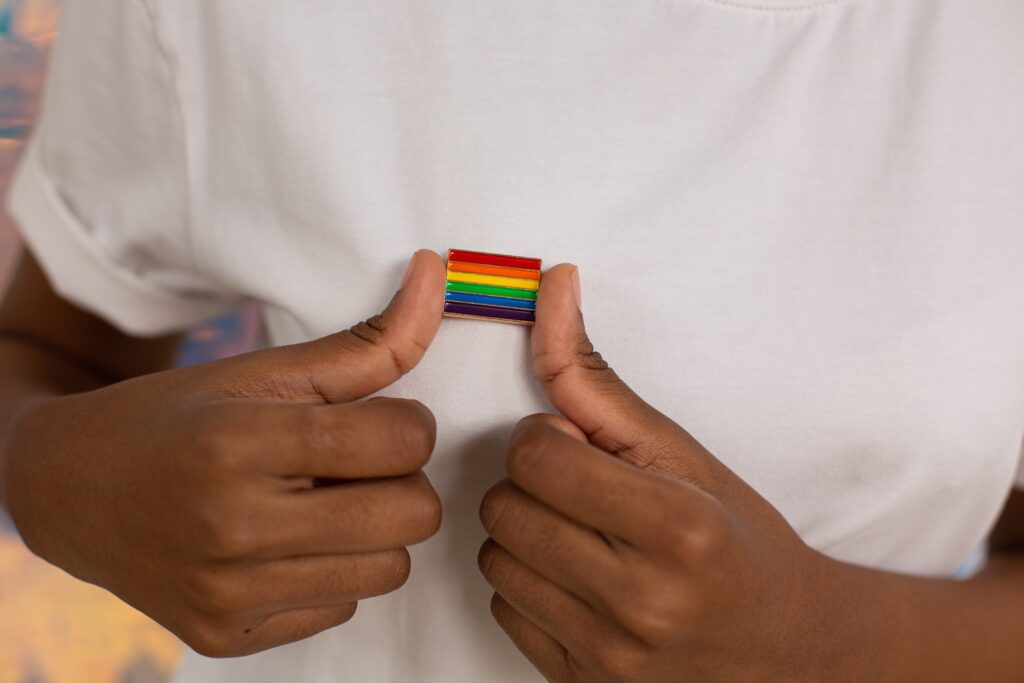Surviving 2023: What we need to do now
The attacks on our community and allies never end and seem to be worse this year: From the recent murder of Lauri Carleton for flying a rainbow flag, to the murder of gay dancer Shea O’Sibley for voguing at a gas station, 2023 is proving to be a deadly year.
LGBTQ people poured into the streets throughout June to celebrate Pride with joy. But July brought a series of violent hate crimes, a GOP-led hearing in the House on gender-affirming care, a Moms for Liberty conference targeting LGBTQ people, yet more book bans, and the prospect of a long autumn filled with dangerous rhetoric from Republican presidential candidates.
How do we move forward in the midst of grief and fear and tap into collective resilience and even hope—especially after the Human Rights Campaign (HRC) issued a declaration of a state of emergency? Queer Forty reports from the front lines in the battle for LGBTQ lives and what we can do to save ourselves and each other.
2023: A Year of Grief and Resilience
This is a story about grief. Personal. Communal. Societal. Political. Historical.
It is about the compounded grief of being in an historically marginalized community. About how that history is a weight—of pain, of suffering, of oppression. At a time when the GOP is trying to rewrite our most basic histories—like claiming slavery was really a job corps program where slaves acquired skills—LGBTQ identities are in peril. The largest advocacy group in the nation has issued a national state of emergency for LGBTQ people which the people putting us at risk have deemed hyperbole and hysteria.
This is also a story about the transcendent resilience required of a community and a people, the battle for survival by LGBTQ people forever in mourning for losses that go unacknowledged by the larger society, what lesbian historian and activist Joan Nestle calls “The sturdy yes of a people.”
This is a story about the impact of our losses collectively and individually on us: The loss of iconic leaders. The loss of lesbian and gay partners. The loss of children taken in homophobic custody battles. The loss of jobs and housing and education and our families of origin who disown us and reject us. The loss of full social status and first-class citizenship. The loss of our very identities as laws are passed meant to erase us from speech and books and even community.
We are people in mourning even as we are disallowed our grief. Grief and resilience: these are fundamentals for the LGBTQ community. Activism has always been born of grief tempered by resilience. But we don’t talk about it. We don’t talk about how we are propelled by loss and pain and the impact of the micro- and macro-aggressions that we all experience as queer and trans people. Those aggressions are concomitant with being part of an historically marginalized community and so are the ways in which we try to be self-protective. If we are in more than one such community—women, people of color, disabled, immigrant, poor LGBTQ people are dealing with more than one oppressive marginalization—the struggle is exponentially worse, the pain worse, the grief more, the fear more.
Audre Lorde spoke about that fear. In Sister Outsider she wrote, “I was going to die, sooner or later, whether or not I had even spoken myself. My silences had not protected me. Your silences will not protect you…. What are the words you do not yet have? What are the tyrannies you swallow day by day and attempt to make your own, until you will sicken and die of them, still in silence? We have been socialized to respect fear more than our own need for language.”
Lorde wrote, “I began to ask each time: ‘What’s the worst that could happen to me if I tell this truth?’”
In his novel Giovanni’s Room, James Baldwin wrote: “There are so many ways of being despicable it quite makes one’s head spin. But the way to be really despicable is to be contemptuous of other people’s pain.” In “A Letter to My Nephew,” Baldwin wrote: “Please try to remember that what they believe, as well as what they do and cause you to endure does not testify to your inferiority but to their inhumanity.”
We are at an inflection point of inhumanity against LGBTQ people. And yet we repress our grief.
In our not-so-distant past, we turned grief into anger to fuel action. That’s what happened during the AIDS crisis. It also happened when Harvey Milk was murdered. When Matthew Shepard was murdered. There was massive response to collective grief.
In her novel Rat Bohemia, lesbian writer and activist Sarah Schulman’s central character, David, a writer dying of AIDS, says, “They’re glad we’re dying….Really, they’re relieved.” He’s talking about families of people with AIDS, but his words resonate: That is how mainstream society viewed the death and dying of so many gay men.
In her massive 700-page history of New York’s ACT UP, Let the Record Show, Schulman writes about activist writer Michael Petrelis standing on a pew in St. Patrick’s Cathedral in New York in a huge—7,000 people—and famous ACT UP action in 1989. Petrelis yells, “You’re killing us!” as scores of other activists lay down on the floor of the church, in one of the most provocative of many ACT UP die-ins.
The current assault on LGBTQ people by the right has yet to be met with the same reactive forging from pain into action. That must change.
Violence Against Us
Grief and rage go hand in hand when the losses become too great to bear.
On Saturday, July 29, O’Shea Sibley, 28, a Black gay dancer and a group of friends — other dancers — were voguing to Beyoncé’s music at a Brooklyn gas station, just blocks from Sibley’s home, when a group of men started hurling homophobic comments. Witnesses say the men claimed the dancers’ actions violated their religious beliefs and they didn’t want such actions in their neighborhood. The altercation escalated and according to NYPD officials, Sibley was fatally stabbed by a 17-year-old male.
“He had a problem with them dancing, he wanted them to stop dancing, he started arguing with them. And then after a few fights and back and forth arguing, he pulled out a knife and stabbed him,” witness Sayeda Haider told NBC New York.
In a video posted to Facebook, Sibley’s friend Otis Pena said both Sibley and Pena told the men, “Stop saying that. There is nothing wrong with being gay.”
“They murdered him because he was gay, because he stood up for his friends,” Pena said.
Pena called Sibley a “beacon of light.”
“He was just saying we may be gay, and we’re listening to our music, but there’s no hate, it’s all love — when you stabbed him,” Pena said. “You stabbed my brother.”
Pena had pressed on Sibley’s wound to stop the bleeding as they awaited an ambulance. Sibley was taken to Maimonides Medical Center, where he was pronounced dead.
There has been national attention to Sibley’s murder—unusual for an anti- gay hate crime and perhaps spurred by Beyoncé memorializing Sibley on her website, posting “REST IN POWER O’SHAE SIBLEY.”
When Akira Ross, 24, was murdered, it barely made the news and in fact was only reported locally days after the crime was committed.
Ross was killed at a different gas station in suburban Austin. Texas is a state whose governor has waged war on LGBTQ people.
The circumstances of Ross’s killing were similar to Sibley’s: A cis-het white man, Bradley Stanford, 23, didn’t like seeing her in an exchange with her girlfriend, Tanya, who went into the gas station store. He came up to Ross’s car and got into an argument with her, according to a friend who was with the couple.
Ross got out of the car and went into the store. The friend sent a text message to Tanya that read, “Yo tell the cash person this man got a gun and trying to get KB (Ross),” according to a police affidavit.
Ross came out of the store and walked to her car. After hurling anti-gay slurs at Ross, Stanford shot her three times, then drove off. He was arrested 48 hours later and charged with murder. He has not been charged with a hate crime.
Ross’s killing never made the national news. GLAAD issued a statement about Sibley’s murder in which GLAAD highlighted other anti-LGBTQ killings in recent weeks, calling Sibley’s death part of a “disturbing rise in violence and harassment.”
GLAAD noted Ross’s murder as well and said the organization has been “tracking escalating violence against LGBTQ people, including at least a half dozen murders over the last weeks across the country.
Anti-LGBTQ Domestic Terrorist Rhetoric
On Independence Day weekend, GOP presidential candidates were in Philadelphia speaking at a conference of Moms for Liberty, which the Southern Poverty Law Center has designated a domestic terrorist hate group.
A surreptitious protest took place inside the conference in the form of hang tags placed on doors throughout the hotel by Agenda PAC that read “Welcome to the Gayborhood” and “Hate has no place in Philly,” as well as “Please disturb, fascism in progress.”
One speaker called the Moms for Liberty weekend the “most important conference to happen in Philadelphia since 1776.” Several key breakout sessions at the center of the group’s mission, such as “Protecting Kids from Gender Ideology” and “Getting Flipped School Boards To Take Action,” were kept behind closed doors, with media access barred.
On July 27 the Republicans convened a hearing on “The Dangers and Due Process Violations of ‘Gender-Affirming Care’ for Children” in which the House Subcommittee on the Constitution and Limited Government focused on gender dysphoria, Title IX and women’s sports and parental decision-making around gender-affirming care for minors. Featuring what LGBTQ+ rights advocates have come to see as a “usual suspects” list, many of the same witnesses who have testified in favor of state bills restricting trans and gay rights were there to speak: noted transphobes, detransitioners and those claiming to have been harmed by trans athletes in sports. Not one medical professional spoke at the hearing, which lasted more than two hours and was televised live on C-SPAN (and for which there is a full transcript and video).
Louisiana’s Rep. Mike Johnson set the tone as he opened the hearing saying, “No parent has a constitutional right to injure their children.” Calling gender-affirming care “barbarism,” Johnson asserted, “This is the mutilation of children and it should be prohibited by our law.”
Throughout the hearing Republican speakers blurred the lines between sexual orientation and gender identity, making the two very different identities interchangeable, a trend started by Florida GOP Gov. Ron DeSantis with his “Don’t Say Gay” laws. DeSantis has folded drag shows, trans athletes and book bans into his repertoire as he struggles in the GOP presidential primary.
They also reduced both identities to a matter of choice easily dismissed.
Rep. Wesley Hunt (R-Tex.) used a food pyramid chart to argue against gender-affirming care for minors, claiming it would be the same as feeding kids ice cream at every meal. “If my children had their way, they would have ice cream for breakfast, lunch and dinner and for every single meal in between. Oh, the wisdom of children!” Hunt said.
The rhetoric used at the hearing has been replicated on the campaign trail as GOP candidates fight to claim a spot for themselves in a slate of 13 candidates where Donald Trump, despite a third indictment, leads by over 50% in polling. DeSantis has been most vocal in his anti-gay/anti-trans speech which he’s bolstered with policy he’s signed into law in Florida. But other candidates, like billionaire entrepreneur Vivek Ramaswamy, have ratcheted up the intensity of the talking points. Ramaswamy calls the rise in Gen Z identifying as LGBTQ with the Nazi-inspired term “social contagion.”



And even Democratic candidate Robert F. Kennedy Jr. has adopted the anti-LGBTQ rhetoric as he tries to supplant incumbent president Joe Biden, the most pro-LGBTQ president in U.S. history. Kennedy, known for conspiracy theories, claims chemicals in our water are making kids gay and trans.
In Italy, the neo-fascist government of Giorgia Meloni is a warning for Americans: the government has begun removing the names of non-gestational lesbian mothers from the birth certificates of their children. How long till such actions come to the U.S.?
Spurring Action
Through all of this–the personal and collective losses, the violence, the laws being passed, an entire political party making queer and trans people a rallying cry for the 2024 election—LGBTQ people are under threat, losing ground. We are in stasis, unable to grieve our wounded and dead and unable to feel rage at what is happening, numbed by the pandemic years and so much loss.
In the AIDS crisis era we carried coffins through the streets. We held die-ins. This reporter laid down in streets in Philadelphia, New York City and San Francisco; laid down in a conference hall at an AIDS convention in Boston. This reporter was arrested in front of the White House for protesting the Bush administration’s lack of response to AIDS.
The GOP was killing people and we fought back. We mourned our dead publicly with a quilt the size of the D.C. mall.
Where is our grief, where is our rage? GOP policies are putting our elders on the streets, our kids on suicide watch and leaving those of us in middle age who remember the turmoil of those years when we were in our 20s and 30s and fighting for our lives or the lives of our friends in a state of fear and confusion.
As trans activist Imara Jones told Queer Forty, “Black trans people are the most marginalized of the marginalized in every single way imaginable. This extreme marginalization puts us at risk for multiple forms of violence—economic, cultural, policy and political—which ultimately culminate in extreme physical violence.”
All this marginalization was made exponentially worse when the U.S. Supreme Court legitimized discrimination on the last day of June. With the highest court in the nation against us on something so basic, how solid are any of our rights?
Joan Nestle spoke about this very issue, telling Queer Forty, “I think it’s happening with another intensity. When you have presidential candidates, when you have major political parties, who are culturally cleansing—culturally cleansing, that’s my term for it—your imagination, lesbian imagination, lesbian writing, anti-racist writing and what’s acceptable—the closest I think of is the McCarthy era—that’s on a level that stuns me, too. That even a minority of Americans—and I am hoping it’s a minority—should turn to this rightward swing is stunning.”
Resilience Is Our Path to Survival
Throughout the AIDS crisis, gay and lesbian writers and artists spoke our truths in a body of literature and some extraordinary art works.
We have this tool readily available to us. We can tell our stories, we can mine the grief for a tableaux that includes our resilience and our paths to personal and collective survival. We can mourn our losses even as we move forward toward a future which highlights hope.
After
after the morgues are full
after they are done setting fire to bodies in the streets
after we have been unable to press our lips to each other’s
because the ash still lingers
and our tongues are thick with longing
after you have been poisoned and burned
after your body has changed in front of me
after I have held your hand when you could not speak
after I whispered to you in the dark
after we spoke our own language
after I lay next to you, your hand still soft in mine
even as you turned cold
after all of that I will still love you
even as you become ash and drift up into the night sky
the stardust you said I was in your life
are you waiting for me
your light still bright
the ash of loss still thick on my tongue
even then I will still love you
after
(by Victoria A. Brownworth, copyright c 2023)
What’s Next?
We cannot have grief without action. We cannot be pulled into the roiling maelstrom of pain and suffering without a life preserver to keep us from going under. That’s what the GOP and MAGAs want: to silence us. And as so many of our queer and trans icons have said, that is an unsustainable answer.
Trans activist Imara Jones told Queer Forty we have to speak truth to all layers of power, even within our own communities. In her provocative essay “Confronting Black men’s roles in the murders of Black transgender women may be the only way to save our lives,” Jones asks “where are our pro-Black institutions in the growing crisis against Black transgender women?”
GLAAD called for action: “This cannot continue. No one should have to fear for their safety just for being themselves. Politicians spewing lies and proposing policies filled with disinformation, and media repeating their false and dangerous rhetoric unchallenged, are creating an incredibly hostile environment that endangers all LGBTQ people and all queer people of color.”
Along with HRC’s “National State of Emergency for LGBTQ+ Americans” came a concomitant workbook for safety. HRC also has a program “Count Us In” which “provides businesses and employers with key tools and resources to advocate for equality, amplify LGBTQ+ stories and educate key stakeholders on priority issues.” And HRC has a “Share Your Story” program, noting, “Sharing personal stories is a critical way for LGBTQ people to help advance our movement.” And as 2024 will become a referendum on LGBTQ lives, HRC has established its own voting center.
On Aug. 26, HRC joined a chorus of civil rights leaders championing the continued fight for equality and social justice ahead of the afternoon’s historic March on Washington.
On Aug. 29, Global Affairs Canada changed its U.S. travel advice to include a caveat for LGBTQ+ travelers because “some states have enacted laws and policies” that may affect them. Canada’s travel advisory for the United States now includes a “cautionary message for those who consider themselves two-spirit, lesbian, gay, bisexual, transgender, queer, questioning or intersex, or 2SLGBTQI+.”
Canadian Deputy Prime Minister Chrystia Freeland told reporters during a press conference August 30 that the nation’s updated travel advisory is not politically motivated and is meant to keep Canadian citizens as safe as possible abroad.
“As someone who has had the real privilege of serving as Canada’s foreign minister, I know that our travel advisories are done very professionally,” she said. “We have professionals in the government whose job is to look carefully around the world and to monitor whether there are particular dangers to particular groups of Canadians.”
Canada’s U.S. warning doesn’t specify which states, or which municipal, state or federal laws or policies, are at issue. The warning simply states that travelers should check the local laws for their destination before traveling.
HRC president Kelley Robinson said in a statement in response to Canada’s warning, “When another country is affirming the state of emergency that LGBTQ+ people in the U.S. are currently living through, it only further validates the grim reality that our community is facing.”






